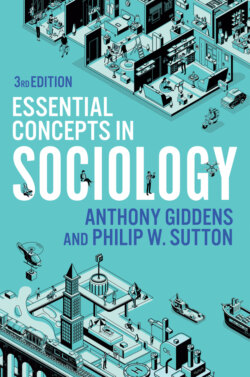Читать книгу Essential Concepts in Sociology - Anthony Giddens - Страница 21
Critical Points
ОглавлениеSome sociologists argue that modernization theory fails to account for the persistence of gross inequalities in the global system and the apparent ‘failure’ of many developing economies to take off as predicted. In particular, recent postcolonial scholarship has argued forcefully that theories of modernity have failed to acknowledge the significance of colonialism (Bhambra 2007). Colonial expansion promoted economic development in the West but had severe consequences for the colonized countries, effectively stunting their development. Hence, the idea of endogenous economic development may be seen as, in essence, ideological rather than explanatory.
A second criticism of the concept of modernity is that it is overgeneralized. Critics see it as really just a post hoc description of some modern societies – but by no means all – which fails to offer any explanation of the causes of modernization. Because the concept incorporates several key social processes, it is too vague and is largely descriptive rather than analytical. It is not clear which of the constituent elements is the main driving force in the modernization process. Is capitalist economics the main causal factor or is it industrialization? What role is played by democratization? Where does urbanization fit in – is it a cause or a consequence?
Neo-Marxist critics also take issue with the idea that there is an inexorable logic to modernization that will propel the less developed societies into a period of strong economic growth and prosperity. Rather, at the global level, the relatively poor countries are kept in a permanent state of dependency by the relatively rich world; their resources are plundered by powerful transnational corporations that use their populations as a cheap source of labour. Hence, not only is the concept too vague, the modernization thesis as such is deeply flawed.
